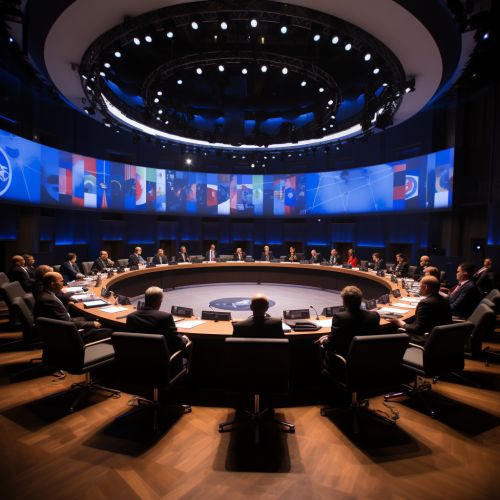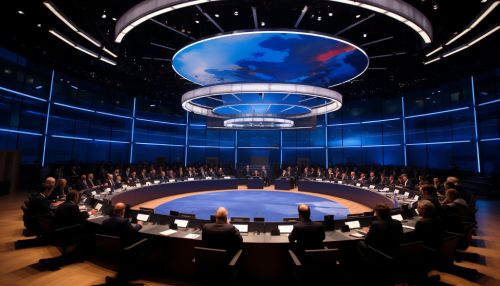NATO
Overview
The North Atlantic Treaty Organization (NATO) is an international alliance that consists of 30 member states from North America and Europe. It was established at the signing of the North Atlantic Treaty on 4 April 1949. The main purpose of NATO is to safeguard the freedom and security of its member countries through political and military means. NATO promotes democratic values and encourages consultation and cooperation on defence and security issues to build trust and, in the long run, prevent conflict.
History
NATO was largely formed in response to the threat posed by the Soviet Union during the Cold War. The organization was created with the aim of defending member nations from threats by communist countries. The North Atlantic Treaty, which established NATO, was signed in Washington, D.C., on 4 April 1949 by 12 founding members.


Structure
NATO's structure includes the civilian-led organizations, the military structure, and organizations and agencies. The main decision-making body in NATO is the North Atlantic Council, which is composed of Permanent Representatives from all member countries. The Council is headed by the NATO Secretary General. It is supported by the International Staff and International Military Staff.
Membership
NATO membership is open to "any other European state in a position to further the principles of this Treaty and to contribute to the security of the North Atlantic area". As of 2021, NATO has 30 members. The most recent member is North Macedonia, which joined in 2020.
Operations
NATO has undertaken a range of operations and missions since its establishment, using both military and civilian means. These operations often involve NATO-led forces and can take place anywhere in the world. NATO's operations have included peacekeeping missions, such as in Bosnia and Herzegovina, and combat missions, such as in Afghanistan.
Criticism and Controversies
NATO has been the subject of various criticisms since its inception. Critics argue that NATO represents a form of U.S. global domination. Others argue that NATO's interventions in places like Kosovo or Libya have led to more harm than good.
Future
The future of NATO is subject to many debates and discussions, particularly in relation to the changing nature of global politics and security. The rise of new powers, such as China, and new security challenges, such as cyber threats, are among the issues that NATO will have to address in the future.
